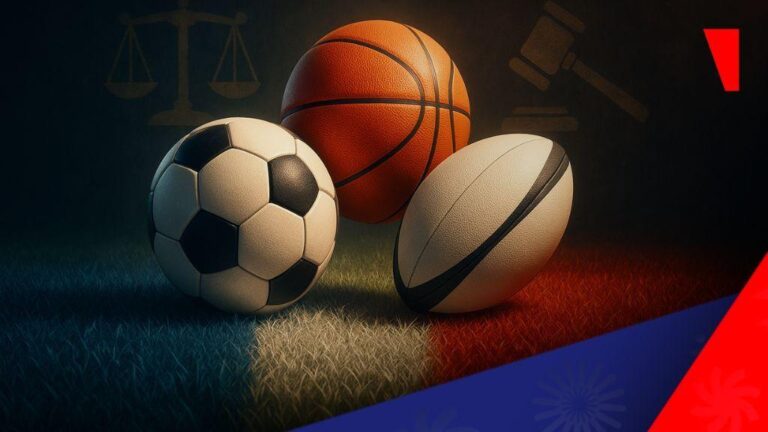In a significant move to safeguard the integrity of sports, France has officially classified match-fixing as organized crime, marking a decisive step in the fight against corruption in competitive events. This development, reported by SBC News, signals the government’s commitment to intensify legal sanctions and enhance investigative powers against networks orchestrating fraudulent outcomes in sports. The reclassification aims to deter offenders and restore public confidence in the fairness of athletic competitions across the country.
France Classifies Match-Fixing as Organised Crime to Combat Corruption
In an unprecedented move, French authorities have upgraded the legal status of match-fixing, treating it as a form of organised crime. This legislative shift enables law enforcement agencies to deploy stronger investigative and prosecutorial powers, aiming to dismantle intricate networks that manipulate sports results for financial gain. Experts believe this approach will significantly deter corruption within French sports, sending a clear message that such illicit activities will face uncompromising scrutiny and punishment.
The new framework introduces enhanced penalties and brings several key changes:
- Increased jail terms for individuals found guilty of orchestrating match-fixing schemes.
- Improved collaboration between sports federations, betting companies, and criminal justice bodies.
- Better detection tools leveraging data analytics and financial monitoring.
- Expanded jurisdiction to pursue organised crime groups operating across borders.
| Aspect | Previous Status | New Classification |
|---|---|---|
| Legal Category | Sports Fraud | Organised Crime |
| Maximum Sentence | 2 years | 10 years |
| Enforcement Powers | Limited | Expanded |
| Cross-border Action | Restricted | Permitted |
Legal and Financial Implications of the New Classification for Sports Stakeholders
With the recent legislative shift classifying match-fixing as an organised crime, stakeholders across the French sports ecosystem face substantial legal risks that far exceed previous sanctions. Athletes, coaches, club officials, and betting operators are now potentially liable to criminal investigations, which may lead to severe judicial consequences including imprisonment and hefty fines. This elevation demands rigorous compliance and internal controls to avoid inadvertent association with illicit activities, creating an unprecedented layer of accountability within sports governance.
The financial ramifications are equally significant, introducing stricter penalties and heightened scrutiny on the flow of funds linked to sporting events. Clubs and companies involved in betting face stricter licensing requirements and must implement enhanced due diligence measures to detect suspicious transactions. Below is a summary of key financial and legal impacts for sports stakeholders under the new classification:
| Stakeholder Group | Legal Risk | Financial Impact | Compliance Measures |
|---|---|---|---|
| Players & Officials | Criminal prosecution for collusion | Fines up to €100,000 | Mandatory reporting of suspicious approaches |
| Clubs & Federations | Organised crime association charges | License suspensions, financial penalties | Implement anti-corruption protocols |
| Betting Operators | Enhanced regulatory oversight | Revocation of licenses for violations | Robust transaction monitoring systems |
Enhanced Investigative Powers and Collaboration with International Agencies
France’s new legal framework empowers investigative bodies with significantly strengthened authority to uncover and dismantle match-fixing networks. Authorities now have access to advanced surveillance tools, enhanced data-sharing capabilities, and broader jurisdictional reach to pursue suspects both domestically and abroad. These measures include the ability to freeze assets swiftly, intercept communications, and deploy undercover operations, reflecting a comprehensive approach designed to outpace sophisticated crime syndicates.
In parallel, collaboration with international law enforcement agencies has been intensified to create a unified front against this transnational threat. France has formalized partnerships with organizations such as Interpol, Europol, and specialized sports integrity units, fostering real-time intelligence exchange and coordinated cross-border actions. Notable areas of cooperation include:
- Joint task forces focused on match-fixing investigations
- Standardized protocols for evidence collection and prosecution
- Shared databases to monitor and track suspicious betting patterns
| Agency | Role in Collaboration | Key Contribution |
|---|---|---|
| Europol | Coordination | Data analysis & joint operations |
| Interpol | Global reach | International alerts & investigations |
| French Judicial Police | Enforcement | Asset seizure & undercover work |
Recommendations for Sports Bodies to Strengthen Integrity and Prevent Match-Fixing
To combat the rising threat of match-fixing, sports organizations must adopt a multifaceted approach anchored in transparency and accountability. Implementing comprehensive education programs for athletes, coaches, and officials on the legal and ethical implications of corruption will create a robust first line of defense. Additionally, investing in advanced monitoring technologies that analyze betting patterns and in-game anomalies can aid early detection and deter illicit activities. Collaboration with law enforcement and betting companies is crucial to establish a real-time intelligence-sharing framework that enhances the effectiveness of these tools.
Strengthening regulatory frameworks and enforcing stringent penalties will signal zero tolerance for breaches of integrity. Sports bodies should consider:
- Regular integrity audits to assess vulnerabilities within leagues and tournaments
- Whistleblower protection programs encouraging insiders to report suspicious behavior safely
- Clear, enforceable codes of conduct that explicitly address match-fixing and related offenses
Proactive engagement with stakeholders and a commitment to transparency will foster trust and safeguard the sanctity of competitive sports at all levels.
The Way Forward
As France moves to classify match-fixing as organized crime, the country signals a tougher stance on the integrity of sports. This legislative shift aims to strengthen law enforcement capabilities and deter criminal networks from exploiting sporting events. With the global sports community watching closely, France’s decisive action may set a precedent for other nations seeking to safeguard fair play and uphold the spirit of competition.




